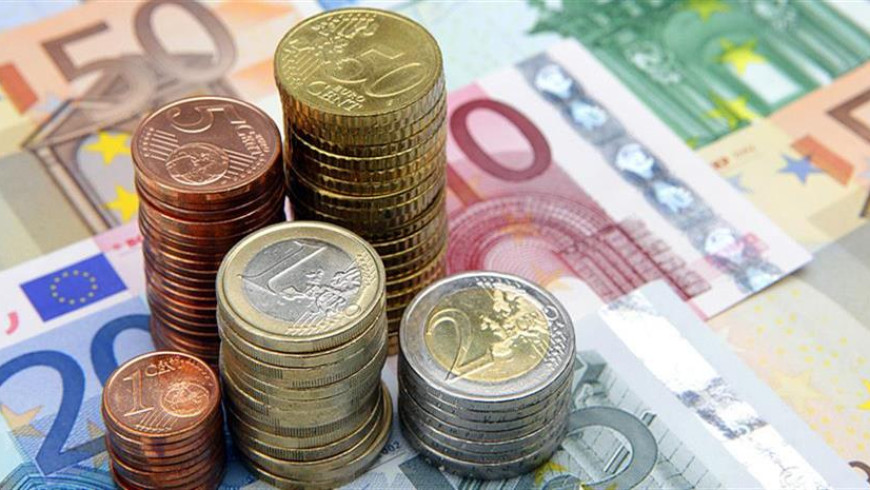European Commission Harming Greece and Cyprus with Questionable Forecasts!

The autumn 2021 forecasts of the European Commission for Greece and Cyprus are excessively optimistic particularly on inflation rates and the government finances. In making these fanciful forecasts implicit support is bestowed on the policy management of the economies of Greece and Cyprus that in turn causes the authorities of these countries to postpone the urgently needed reforms and measures required to address serious pre-Covid economic and financial problems.
Inflation rates
With the persistence of high energy prices and supply bottlenecks as well as the recent sizable depreciation of the euro it has become increasingly obvious that the Commission have underestimated increases in prices for Greece and Cyprus in its forecasts.
For Greece the Commission forecasts that consumer prices will increase by only 0.1% in 2021 and by 1.0% and 0.4%, respectively, in 2022 and 2023. The GDP deflator is forecast to follow a similar path. However, with the annual increase in industrial producer prices in Greece surging to 17.3 % in September 2021 and that of consumer prices rising to 3.1% in October 2021 and high prices likely to remain it is clear that the Commission’s forecast of hardly any rise in prices this year is a gross underestimate.
For 2022 and beyond the Commission assume that the recent steep increase in import prices including freight costs is temporary with “the transitory effects of (higher) energy prices petering out”. But with the surge in prices globally being more persistent than earlier predicted by EU institutions the level of prices forecast by the Commission for 2022 for Greece and other EU members is probably considerably underestimated. And the extent of underestimation of inflation rates in Greece and other countries will depend among other things on the degree to which higher prices feed into increased wages and consumer price expectations.
For Cyprus the Minister of Finance has continually stated that the recent surge in prices is a temporary phenomenon and appears to support the Commission’s forecasts for consumer prices to rise by 1.9% in 2021, 1.7% in 2022, and 1.2% in 2023. The measures taken by the Cyprus authorities to contain the increases in consumer prices such as the 10% discount on electricity charges can be expected to limit the rate of consumer price inflation to just above the Commission forecast for 2021. But, cost pressures arising from stubbornly high prices of imported raw materials and fuels are likely raise consumer prices and the GDP deflator to levels well above those forecast by the Commission for 2022. In fact, reflecting much higher input prices for electricity, plastics, wood and metallic products the industrial producer prices in Cyprus rose by 12.7% in the 12 months to September 2021. It is debatable also whether the full Cost of Living Adjustment mechanism will be restored in Cyprus and if so whether it will contribute to a wage price spiral.
Economic growth
After increasing by around 7% in the first half of 2021 the Commission forecast that real GDP in Greece will rise by 7.1% for the full year, that is substantially above the summer forecast of 4.3%, and by 5.2% in 2022. These estimates imply that there will be no significant slowdown in economic growth in the second half of 2021 at a time when economic activities are being adversely affected by the upsurge in Covid 19 cases, supply bottlenecks and the related large rise in producer costs. Furthermore, supply side constraints and the passing on of costs onto final producers and consumers could extend well into 2022 and curtail real disposable incomes and demand and together with the repercussions of a protracted elevation of Covid cases on tourism could reduce economic growth over the coming year. And for the medium-term, delays in the effective implementation of the Recovery and Resilience plan could also seriously dampen economic growth.
For Cyprus the prospect of achieving the Commission’s forecast of an increase in real GDP of close to 5.4% in 2021 is highly probable as the prevailing pandemic seems to be having little impact in hindering economic recovery, and price increases currently do not appear to be curtailing consumer spending. However, with supply constraints and further related price increases extending well into 2022 and financial problems of developers reducing investments in construction activity, together with falling real disposable incomes of private sector employees depressing consumer demand, the economic growth rate of Cyprus could be well below the Commission’s forecast of 4.2% for 2022 and 3.5% for 2023. And as in Greece inevitable delays by Cyprus in effectively implementing the much-trumpeted Recovery and Resilience plan along with the continued heavy debt burden of the private sector are factors likely to hinder economic growth over the medium-term.
Government finances
For Greece the Commission forecasts that the government deficit will decline from 10.1% of GDP in 2020 to 9.9% in 2021 and more steeply to 3.9% in 2022 seem most unrealistic. Larger fiscal costs owing to a much higher rate of inflation than earlier forecast and greater expenses associated with the worsening of the pandemic situation as well as the advancing of large defense expenditures should keep the government deficit above 10% of GDP in 2021 and prevent the deficit from falling markedly in 2022. And despite relatively large increases in nominal GDP forecast for 2021 and beyond, the expected incurring of very large government deficits should mean that the Commission forecast of a steady downward trend in the ratio of government debt to GDP to well below 200% by 2023 is most unlikely to be achieved.
For Cyprus the Commission’s forecast of a government deficit of 4.9% of GDP in 2021 appears to be very low as a series of supplementary budgets raising government expenditures in the final months of the year and the mounting deficits of the National Health Scheme are likely to raise the deficit to significantly above the aforementioned forecast. And in view of the higher fiscal costs arising from greater inflationary pressures than earlier forecast including from the payment of COLA to government employees and pensioners as well as political pressures in a pre-Presidential election year, the Commission forecast of a deficit of 1.4% of GDP in 2022 is likely to be considerably exceeded. Furthermore, the Commission’s forecast of a government debt to GDP ratio declining from 115.3% at end-2021 to under 100% by end-2022 seems highly improbable as the maintaining of a relatively high deficit in 2022 and the need to add to Government borrowing to help finance the huge external current account deficit in 2022 (Commission estimates deficit equal to 9.1% of GDP) can be expected to elevate government debt to well above official forecasts.
Concluding Remarks
The economic forecasts of the European Commission can have a considerable influence on the policies undertaken by member states, especially in countries where constructive advice on policies from independent research institutes and persons is largely ignored by policymakers. In situations where the Commission presents “favorable” forecasts, but which are excessively optimistic, showing that a country is likely to achieve a healthy rate of economic growth, modest inflation, and a considerable improvement in its government finances, as appears to be the case with the latest Commission forecasts for Cyprus, policymakers are likely to delay the reforms and measures required to deal with serious problems. For example, in Cyprus the current need for a higher revenue-yielding tax system to assist inter alia vulnerable persons hurt by high prices, is masked by unrealistic inflation and fiscal forecasts.







 3287.99
3287.99 1275.09
1275.09

